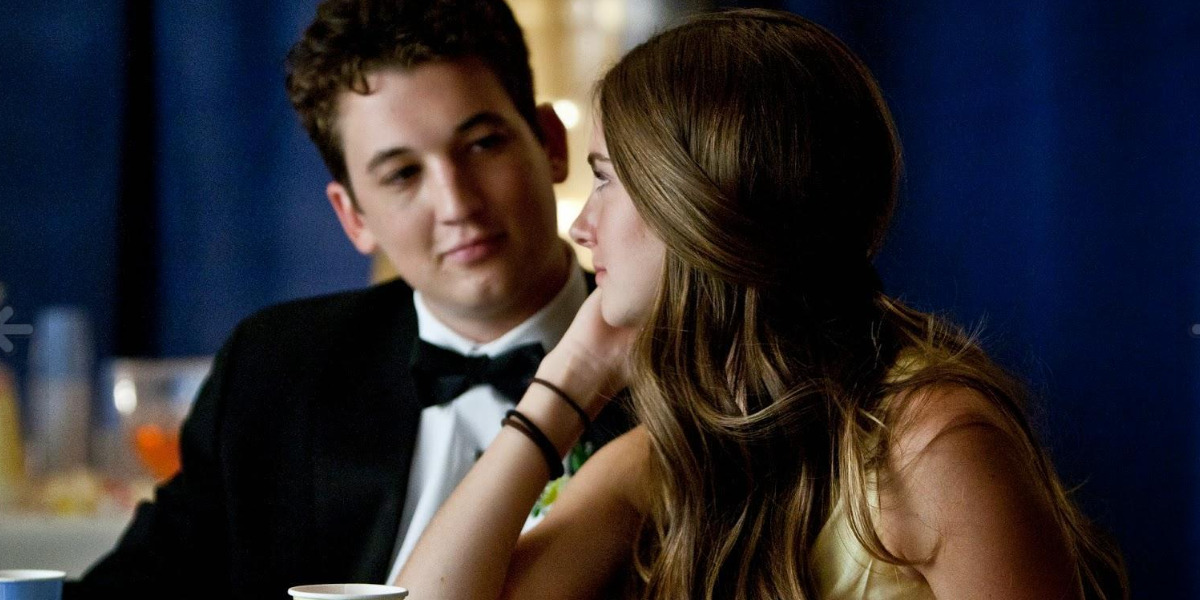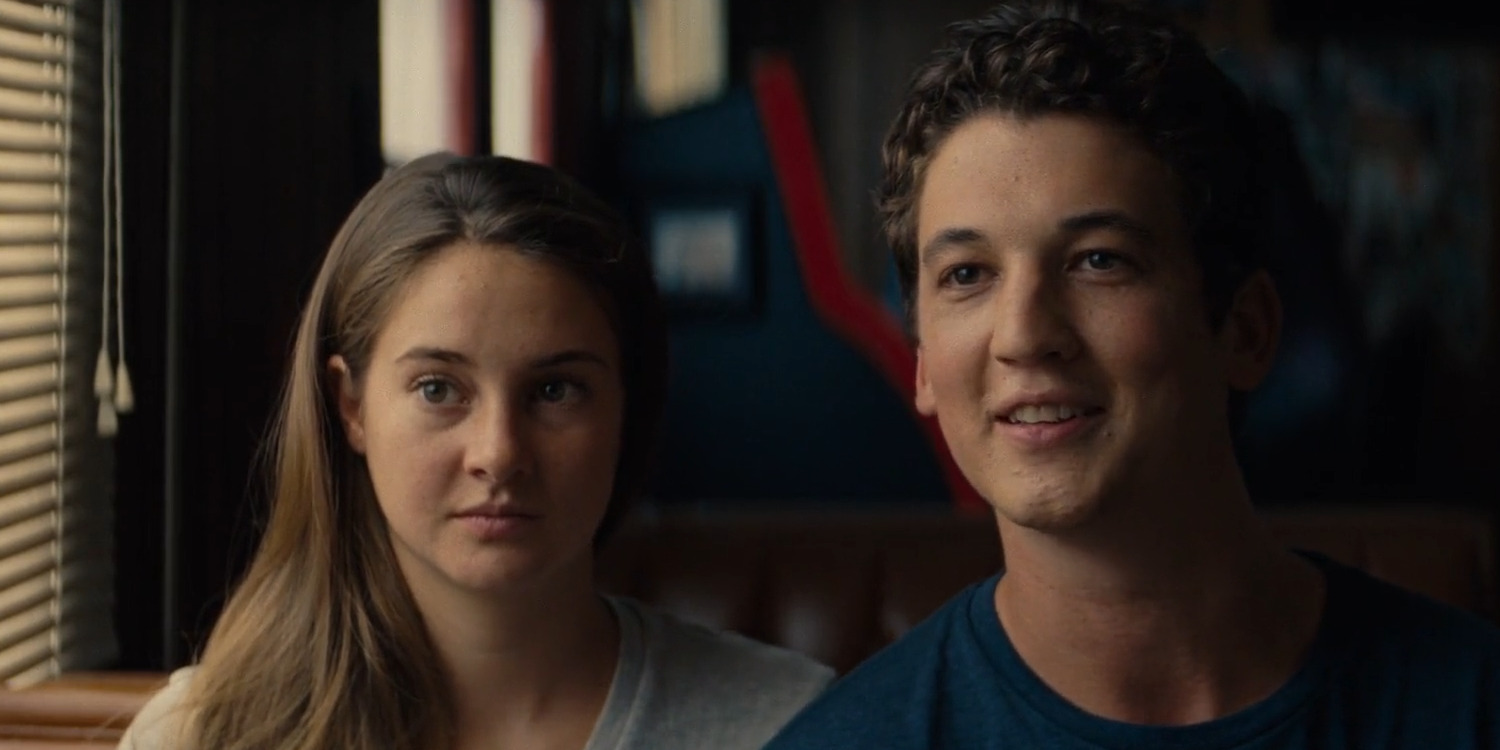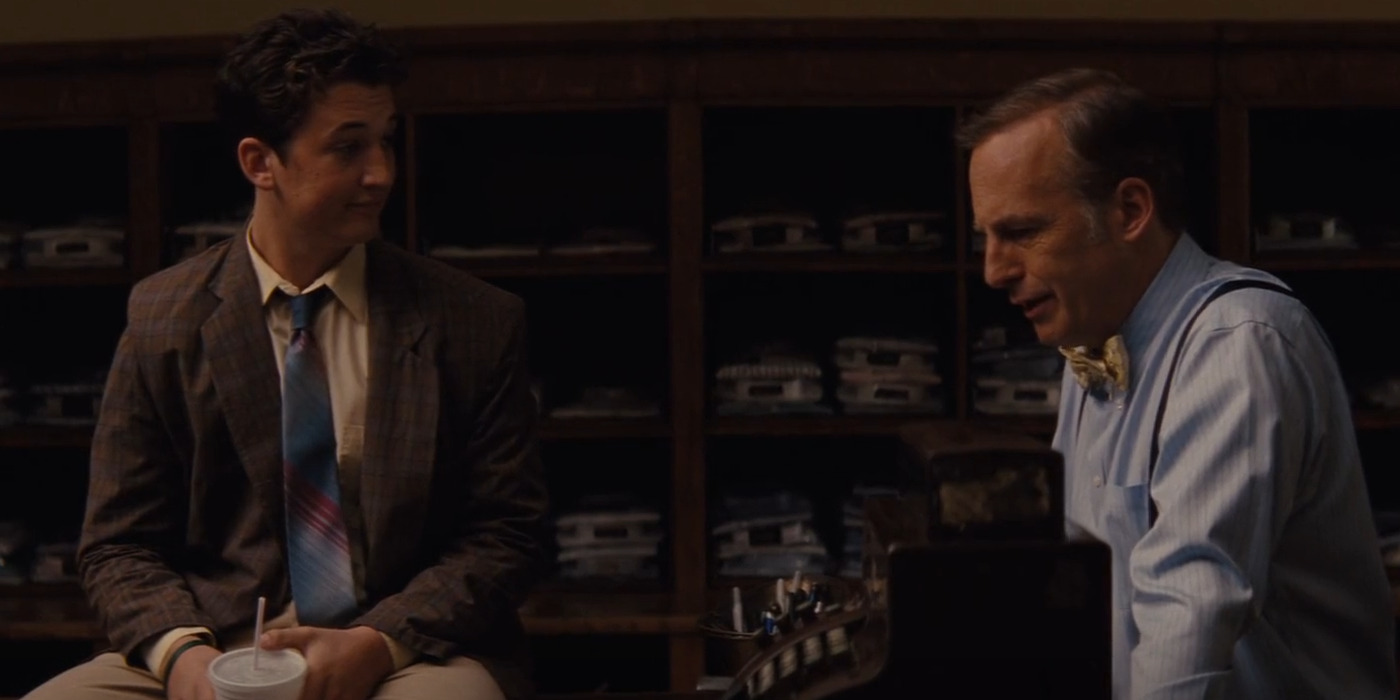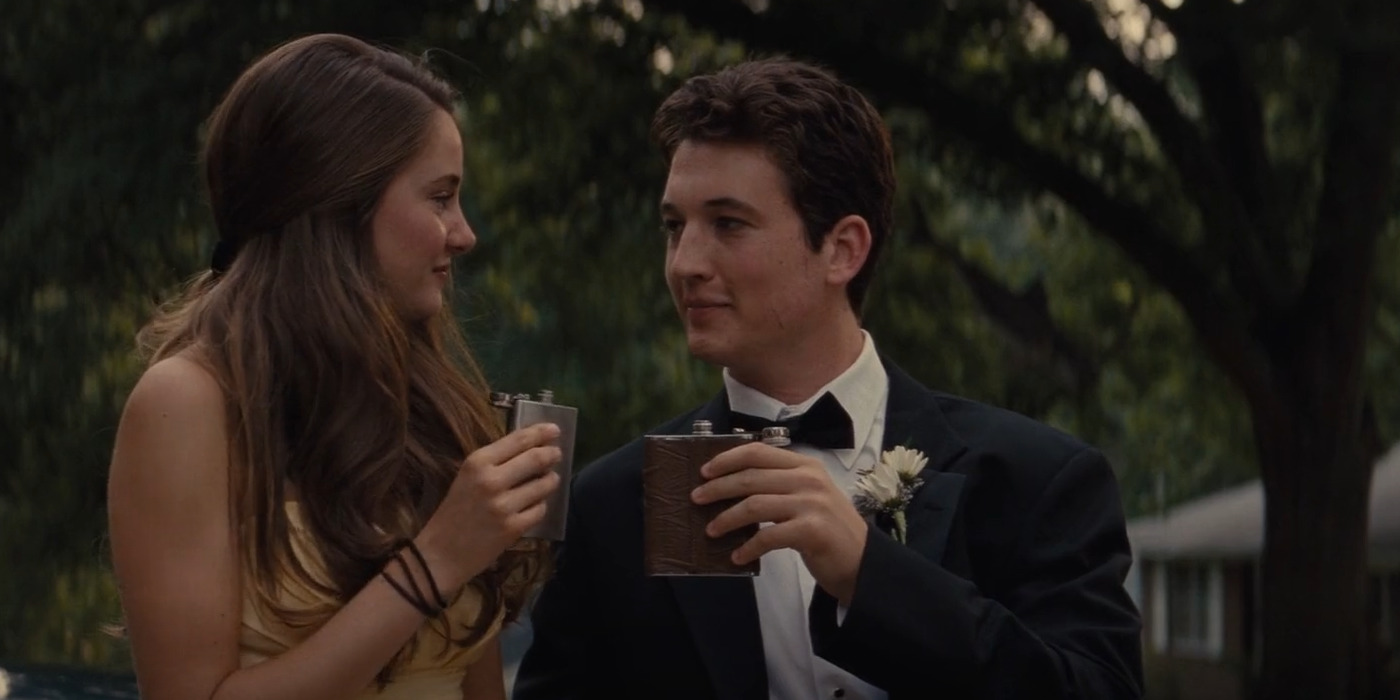James Ponsoldt’s ‘The Spectacular Now’ offers a poignant story about a deeply troubled man who hides behind a flippant life-of-party persona to avoid the bigger challenges of life. During his last year of high school, Sutter Keely’s girlfriend, Cassidy, dumps him for his immature ways, which only compels him down more reckless spirals. At the end of one such spiral, Sutter meets Aimee Finicky, who is nothing like him yet seems to understand him on an impossible level. As the two teens traverse through their senior year, they end up changing each other’s lives—even if not always for the better.
Mirroring its protagonist, the film’s narrative also gradually crashes from a celebration of youth to the solemn acceptance of the entrapping of the formative teenage years. One of the most notable ways this shift is highlighted is through Sutter’s consumption of alcohol. Naturally, as the viewers witness him go from drinking at a party to getting drunk at a desolate bar, questions are bound to arise about Sutter’s relationship with alcohol. SPOILERS AHEAD!
Sutter’s Party Animal Phase
At first, Sutter’s relationship with alcohol seems nothing out of the ordinary for a 17-year-old kid. He drinks at parties, and more often than not, he ends up being the center of attention with his antics. Given his age and the nature of high school parties—known for their kegs—nothing seems out of the ordinary just yet. His behavior appears reminiscent of regular high schoolers using alcohol as an all-purpose elixir. Even when he gets drunk and makes a scene at a party following his breakup with Cassidy, Sutter’s heartbreak can be blamed for his ill-advised drunken condition.

Therefore, when the narrative finds Sutter passed out in a stranger’s yard, one is inclined to believe the instance is an exception for the kid rather than a regular occurrence. However, early warning bells ring when the viewers first see the kid at his part-time job—a men’s clothing store—where he spikes his soda cup from a flask. The idea of a high schooler with a perpetual flask in his coat is disturbing enough.
As such, once one takes into account that Sutter is drinking on the job seemingly without any effect on his inhibitions, it becomes evident that the same is a learned habit for the kid. Drinking at a party—or even getting drunk alone after a breakup—would all be standard behavior. However, Sutter’s inclination to drink alcohol even when he’s alone and without reason moves his reliance on the substance past a party-animal persona and into concerning territory.
Tommy: Sutter’s Alcoholic Father
As Sutter opens up to Aimee—a rare occurrence for the boy—details about his past emerge that expand upon his relationship with alcohol abuse. Sutter’s father left his family when he and his sister were young. Even though his mention wasn’t taboo in the house, his mother remained clammy about their separation, leading Sutter to wonder if his father was truly at fault. The way his mother framed it—Tommy cheated on her, compelling her to kick him out of the house. For the same reason, Sutter began idolizing his father and villainizing his mother to make up for the pain of the former’s abandonment.

Thus, despite Sutter’s surface-level flippancy about his life, he secretly sported his father’s abandonment as a piercing wound. During the years that his father was a part of their family, Tommy often got drunk and got into misadventures—instances that his son remembered as comical anecdotes. Furthermore, Tommy also gave Sutter his first alcoholic drink by offering him a beer at six years old. The fact that the boy shares this story while talking about his ability to drink hard liquor offers a connection between his first drink and his propensity to drink that followed.

Consequently, Sutter has a complicated, likely subconscious connection between his father’s memories and his own steady decline toward alcoholism. For the same reason, it isn’t a surprise when the latter increases in magnitude after the boy attempts to meet his father again. The meeting between Tommy, Sutter, and Aimee is a trainwreck, where the older man only reveals that he’s an unapologetic alcoholic who left his family on purpose to enjoy the “now” of life. As a result, a parallel clearly forms between Sutter and his father that the former can’t stomach, which leads to Aimee’s tragic car accident.
Sutter Can’t Quit Alcohol Even When He Tries
The meeting with Tommy and Aimee’s accident becomes a wake-up call for Sutter, who attempts to reconcile his reckless reliance on alcohol. At first, he tries to stay away from drinking, even when Aimee—who has developed the habit of spiking her drinks like her boyfriend— offers. Nevertheless, despite his efforts to not drink around Aimee, who got drastically hurt because of him last time, Sutter doesn’t entirely give up on alcohol.

The same becomes evident when his boss asks him to choose between his position and his habit of being drunk while on the job. At that moment, Sutter decides he isn’t a liar and admits that he’s an alcoholic who wouldn’t be able to give up on drinking, even for his job. For the same reason, he realizes he won’t be good for Aimee and decides to abandon their plans to move to Philadelphia together after graduation. Reverting back to his old ways, Sutter ends up drinking in a bar alone with a stranger.
Ultimately, Sutter’s relationship with alcohol holds subliminal secondary significance throughout the film. After observing his utter reliance on alcohol at one point in time, it becomes evident that the teenager was an alcoholic. However, the story ends on an uplifting note, following an emotionally stormy interaction between Sutter and his mother that motivates him to take life more seriously and hang up his old ways. Whether or not he manages to beat his alcoholism on his road to becoming an adult will likely remain a lifelong battle for the character.
Read More: Best Coming of Age Movies on Netflix


You must be logged in to post a comment.